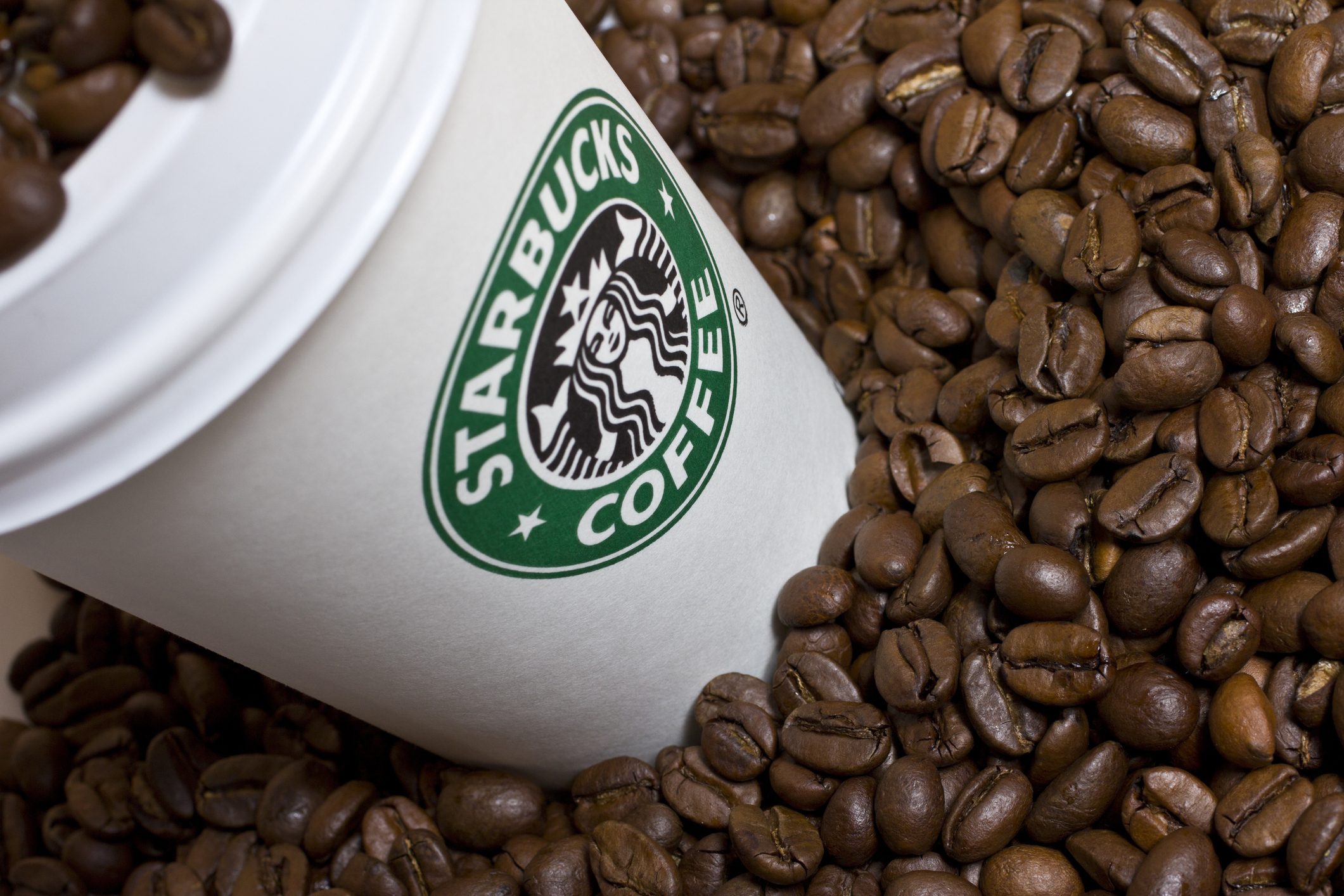Starbucks Is Making Its Stores More Accessible. Here's How.
The coffee chain's move comes at a time when the number of older adults with disabilities is expected to rise.


Profit and prosper with the best of Kiplinger's advice on investing, taxes, retirement, personal finance and much more. Delivered daily. Enter your email in the box and click Sign Me Up.
You are now subscribed
Your newsletter sign-up was successful
Want to add more newsletters?

Delivered daily
Kiplinger Today
Profit and prosper with the best of Kiplinger's advice on investing, taxes, retirement, personal finance and much more delivered daily. Smart money moves start here.

Sent five days a week
Kiplinger A Step Ahead
Get practical help to make better financial decisions in your everyday life, from spending to savings on top deals.

Delivered daily
Kiplinger Closing Bell
Get today's biggest financial and investing headlines delivered to your inbox every day the U.S. stock market is open.

Sent twice a week
Kiplinger Adviser Intel
Financial pros across the country share best practices and fresh tactics to preserve and grow your wealth.

Delivered weekly
Kiplinger Tax Tips
Trim your federal and state tax bills with practical tax-planning and tax-cutting strategies.

Sent twice a week
Kiplinger Retirement Tips
Your twice-a-week guide to planning and enjoying a financially secure and richly rewarding retirement

Sent bimonthly.
Kiplinger Adviser Angle
Insights for advisers, wealth managers and other financial professionals.

Sent twice a week
Kiplinger Investing Weekly
Your twice-a-week roundup of promising stocks, funds, companies and industries you should consider, ones you should avoid, and why.

Sent weekly for six weeks
Kiplinger Invest for Retirement
Your step-by-step six-part series on how to invest for retirement, from devising a successful strategy to exactly which investments to choose.
Washington D.C. is now home to Starbucks' most accessible store yet, and it is laying the groundwork for the chain to have an even more accessible future.
The coffee giant said its newest location, which opened on February 15, is the first of its kind to include a slew of new features and tools to create a more inclusive environment for customers.
As Starbucks noted in a statement, the move comes at a time when about one in four adults in the U.S. has a disability.
From just $107.88 $24.99 for Kiplinger Personal Finance
Become a smarter, better informed investor. Subscribe from just $107.88 $24.99, plus get up to 4 Special Issues

Sign up for Kiplinger’s Free Newsletters
Profit and prosper with the best of expert advice on investing, taxes, retirement, personal finance and more - straight to your e-mail.
Profit and prosper with the best of expert advice - straight to your e-mail.
The number of older adults with disabilities is expected to climb in the next decade as more baby boomers grow older and develop challenges such as difficulty walking, seeing and hearing, according to a January 17 KFF Health News report. The U.S. healthcare system is not prepared to handle the influx, according to the report.
Some companies are beginning to provide more accessibility more broadly. These include AccessibleGO, an accessible travel website that launched a major expansion last month that includes booking equipment rentals, flights, rental cars with hand controls and concierge ride services for wheelchair-accessible vehicles.
But, while more work needs to be done, Starbuck's commitment is certainly a positive sign, said Tony Coelho, a former U.S. congressman and primary author of the Americans with Disabilities Act (ADA), who is quoted in Starbuck's announcement.
"We have to go beyond just what is required to put accessibility and inclusion first to ensure all people feel like they belong in community spaces," he said.
Expanding accessibility features
Under the ADA, restaurants and other public businesses "must provide people with disabilities an equal opportunity to access the goods or services that they offer."
That, however, is often simply not the case, as Maria Town, Maria Town, president and CEO of the non-profit American Association of People with Disabilities (AAPD), told Kiplinger.
"It is good to see retailers making commitments towards accessible and inclusive retail experiences because the reality is, even almost 34 years after its passage, many retailers are not compliant with the Americans with Disabilities Act," she said.
"It is also good to see Starbucks announcing its support of particular policy changes that would advance greater economic mobility and community integration for disabled people," Town said. The presence of accessible and inclusive retail spaces are "less meaningful when systemic ableism in our nation's policies keeps people with disabilities from having disposable income," she added.
Starbucks' new framework
At Starbucks, its store design is a collaboration between customers, partners and accessibility experts, Starbucks said. It will also serves as the blueprint for all future store openings, which will be roughly 600 stores this year, it added.
Plans call for new stores to be open sourced and further developed to help expand accessibility across the retail industry.
New design elements and store features include:
- Portable, adjustable digital menus and order screens that include voice assist, screen magnification and images to make ordering easier in any language.
- Power operated doors.
- Order status screens to assist in informing customers when their orders are ready.
- Updated lighting and acoustics to minimize glare, shadow patterns and sound that can interfere with assistive devices.
- Lower counters to accommodate wheelchair access.
- More accessible pathways into, through and out of the store.
To take a virtual tour of the coffee chain's Washington, DC store built using its inclusive spaces framework, visit the website.
RELATED CONTENT
Profit and prosper with the best of Kiplinger's advice on investing, taxes, retirement, personal finance and much more. Delivered daily. Enter your email in the box and click Sign Me Up.

Jamie Feldman is a journalist, essayist and content creator. After building a byline as a lifestyle editor for HuffPost, her articles and editorials have since appeared in Cosmopolitan, Betches, Nylon, Bustle, Parade, and Well+Good. Her journey out of credit card debt, which she chronicles on TikTok, has amassed a loyal social media following. Her story has been featured in Fortune, Business Insider and on The Today Show, NBC Nightly News, CBS News, and NPR. She is currently producing a podcast on the same topic and living in Brooklyn, New York.
-
 Quiz: Do You Know How to Avoid the "Medigap Trap?"
Quiz: Do You Know How to Avoid the "Medigap Trap?"Quiz Test your basic knowledge of the "Medigap Trap" in our quick quiz.
-
 5 Top Tax-Efficient Mutual Funds for Smarter Investing
5 Top Tax-Efficient Mutual Funds for Smarter InvestingMutual funds are many things, but "tax-friendly" usually isn't one of them. These are the exceptions.
-
 AI Sparks Existential Crisis for Software Stocks
AI Sparks Existential Crisis for Software StocksThe Kiplinger Letter Fears that SaaS subscription software could be rendered obsolete by artificial intelligence make investors jittery.
-
 Quiz: Do You Know How to Avoid the 'Medigap Trap?'
Quiz: Do You Know How to Avoid the 'Medigap Trap?'Quiz Test your basic knowledge of the "Medigap Trap" in our quick quiz.
-
 We Retired at 62 With $6.1 Million. My Wife Wants to Make Large Donations, but I Want to Travel and Buy a Lake House.
We Retired at 62 With $6.1 Million. My Wife Wants to Make Large Donations, but I Want to Travel and Buy a Lake House.We are 62 and finally retired after decades of hard work. I see the lakehouse as an investment in our happiness.
-
 Social Security Break-Even Math Is Helpful, But Don't Let It Dictate When You'll File
Social Security Break-Even Math Is Helpful, But Don't Let It Dictate When You'll FileYour Social Security break-even age tells you how long you'd need to live for delaying to pay off, but shouldn't be the sole basis for deciding when to claim.
-
 One of the Most Powerful Wealth-Building Moves a Woman Can Make: A Midcareer Pivot
One of the Most Powerful Wealth-Building Moves a Woman Can Make: A Midcareer PivotIf it feels like you can't sustain what you're doing for the next 20 years, it's time for an honest look at what's draining you and what energizes you.
-
 I'm a Wealth Adviser Obsessed With Mahjong: Here Are 8 Ways It Can Teach Us How to Manage Our Money
I'm a Wealth Adviser Obsessed With Mahjong: Here Are 8 Ways It Can Teach Us How to Manage Our MoneyThis increasingly popular Chinese game can teach us not only how to help manage our money but also how important it is to connect with other people.
-
 Looking for a Financial Book That Won't Put Your Young Adult to Sleep? This One Makes 'Cents'
Looking for a Financial Book That Won't Put Your Young Adult to Sleep? This One Makes 'Cents'"Wealth Your Way" by Cosmo DeStefano offers a highly accessible guide for young adults and their parents on building wealth through simple, consistent habits.
-
 Global Uncertainty Has Investors Running Scared: This Is How Advisers Can Reassure Them
Global Uncertainty Has Investors Running Scared: This Is How Advisers Can Reassure ThemHow can advisers reassure clients nervous about their plans in an increasingly complex and rapidly changing world? This conversational framework provides the key.
-
 5 Ronald Reagan Quotes Retirees Should Live By
5 Ronald Reagan Quotes Retirees Should Live ByThe Nation's 40th President's wit and wisdom can help retirees navigate their financial and personal journey with confidence.